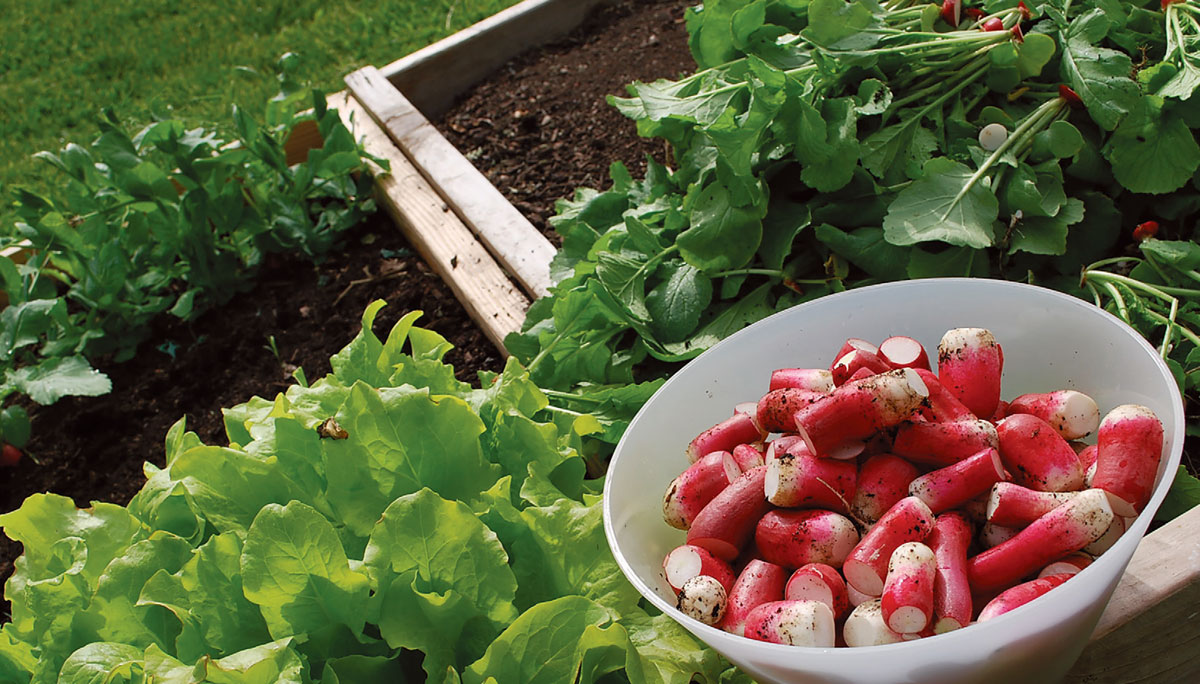Food For Thought: The University of Iowa's First Themed Semester Focuses On The Food
THE UNIVERSITY OF IOWA’S FIRST THEMED SEMESTER FOCUSES ON THE FOOD
You might have noticed that food has become a hot topic of late. Farm fields and kitchens, once settings of labor and drudgery, have become springboards for new celebrities, entrepreneurs, thinkers, writers, and agents of social change. Its fair to say that we are thinking more about our food, where it comes from, and how it is produced than ever before. The national conversation has engaged pop culture, the media, and academic researchers resulting in a diverse, and at times contentious, dialogue. Thus, it is fitting that the first ever “Theme Semester” at the Universtiy of Iowa seeks to create new conversations and opportunities for learning through the topic of food. Throughout the spring semester in 2015, the University will host a number of events all collected under the banner “Food for Thought.”
Linda Snetselaar, UI’s associate provost for outreach and engagement, spearheaded the original effort along with Chuck Swanson, executive director of the Hancher performing arts program, Doris Witt, associate professor of English, and Teresa Mangum, director of the Obermann Center for Advanced Studies. Snetselaar says, “our hope with the theme semester is to unify various groups on campus from the health sciences to the arts and humanities.” But Food for Thought is not just about promoting dialogue within the university, it also aims to better engage the university with Iowa communities. Snetselaar goes on, “I am also personally interested in engaging Iowa communities in work that happens on our campus. Activities that are part of the theme semester are ways to bring our University strengths to Iowa communities.”
The breadth of knowledge and experience at the University of Iowa will allow for participation from diverse areas, including the health sciences, sustainability, humanities and the arts. Chuck Swanson speaks to the importance of including the arts in scholarly work: “All of us at Hancher are thrilled to have the opportunity to contribute to the theme semester by supporting the creation and presentation of a new work of theater. Our friends from Working Group Theatre are experts at collecting stories from the people who know the most about a given topic--in this case food production-- and then weaving those stories into amazing plays. We’re excited to present All Recipes are Home in April. It will be a vibrant part of the Food for Thought semester.”
While the main entrée will be served throughout the upcoming spring, there were some notable appetizers offered during the fall. The annual Iowa City Book Festival in October focused on food and food writing and Iowa singer/songwriter Susan Werner presented songs from her Hay-seed album in a Club Hancher event. In November, graduate students and faculty convened for the Food for Thought Graduate Student Conference. The forum allowed students from departments of Classics, History, Art and Art History, Communication Studies, Sociology, Social Work, and Gender, Women’s and Sexuality Studies a forum to present their original research to the public. The day concluded with an open discussion and brainstorming session about fostering a food studies program at the University.
The spring events round out a delectable menu of offerings throughout the campus and Iowa City. The semester kicked off on January 20 with Iowa Girl Eats blogger Kristin Porter. Porter shared recipes and participated in a panel on World- Canvass, held at FilmScene in downtown Iowa City. In February, Linda Snetselaar gave the University’s 32nd annual Presidential Lecture, entitled “Food, Culture and Community” to a packed house of university and community members. The Old Capitol Museum in Iowa City is presenting “The Land Provides: Iowa’s Culinary Heritage,” an exhibit that shares Iowa’s food heritage through the stories of immigrants. On March 10th, global environmental activist Vandana Shiva spoke at the Englert Theater in Iowa City.
One goal of the theme semester with its emphasis on food, is to think about how the university can support a food studies program and how such a program might benefit students. The Graduate Student Conference in the fall launched the process of generating ideas. In the spring, a central event of the semester will be the Food for Thought Symposium, scheduled for Friday April 17 and Saturday April 18. The symposium will include local entrepreneurs, nationally known scholars, and artists in a series of events open to the community.
Beginning on Friday, April 17, the Universtiy of Iowa office of Sustainability and the Pomerantz Career Center are hosting Feed Your Future: Career Opportunities. Liz Christiansen, director of the UI office of Sustainability says, “the idea behind Feed the Future is to introduce students with interests in food to people who are actually working in the field. The issue of food and access is white hot with students right now. They are passionately interested in issues such as local food, food security, urban food systems and eliminating food deserts, food health connections, ethnic foodways and many, many other areas.” Participants will include Kate Edwards of Wild Woods Farm, Jason Grimm from the Iowa Valley RC&D, UI Grad and Foodcorps service member Chelsea Krist, and Kyle Sieck from Local Burrito. Christiansen says, “we’re asking those who work in a food related career to give a short explanation of their work and how they got into it. We’ll give them some time to talk with students and encourage them to pursue their dream careers.”
One resounding recommendation from the open discussion at the Graduate Student Conference was that a food studies concentration or major at the university should include the health sciences, social sciences, and humanities. For example, even though the University of Iowa is not known for programming in agriculture, the College of Public Health offers programs in agricultural safety and health. Likewise, the health campuses have a wealth of expertise in nutrition and dietary studies. Across the river, as we say in Iowa City, the College of Liberal Arts boasts scholars from the departments of anthropology, geography, history, and English (just to name a few) who study topics related to food. The Saturday symposium, which brings a national panel of scholars to Iowa City to discuss food and food studies, will mirror that diversity with leaders in the field from a wide range of disciplines.
The morning will begin with an examination of food production and distribution. Julie Guthman, a geographer and professor of social sciences at the University of California at Santa Cruz, has published extensively on food production, distribution, and consumption. Her book Agrarian Dreams: the Paradox of Organic Farming is in its second edition and she is currently conducting research examining the response of the California strawberry industry to the ban on the soil fumigant methyl bromide. Kamyar Enshayan, director of the Center for Energy and Environmental Education at the University of Northern Iowa and winner of the Sustainable Agriculture Achievement Award from Practical Farmers of Iowa, will discuss the work he has done over the past two decades to enhance Iowa’s local food economy.
One of the university’s most esteemed alumni will round out the morning session. James L. Watson received a BA in Chinese Studies from the University of Iowa in 1965 and went on to earn a PhD from UC Berkeley in anthropology in 1972. He is now the Fairbank Professor of Chinese Society and Emeritus Professor of Anthropology at Harvard University. He has worked for more than forty years in south China, primarily in the villages of Guangdong and Jiangxi, and the Hong Kong region. He has written extensively about Chinese society and food studies. His edited volume Golden Arches East: McDonalds in East Asia is widely known and now in its second edition. Watson notes, “speaking as a native Iowan and a graduate of the University of Iowa, it is obvious that my alma mater is well placed to take a lead in the study of American food and agriculture. Iowa is now an international laboratory for research on the demographic, social, and cultural impact of industrial agriculture. A new program in food studies promises big things and I, for one, look forward to the results.”
The afternoon sessions bring a philosopher and an historian. Lisa Heldke, professor of philosophy at Gustavus Adolphus College says, “I am committed to exploring the philosophical significance of food--a topic about which philosophers historically have had very little to say.” Her book Exotic Appetites: ruminations of a Food Adventurer is an exploration of what she calls “food adventuring,” the passion, fashion, and pursuit of experimentation with ethnic foods. The final speaker, Hasia diner, is the Paul and Sylvia Steinberg Professor of American Jewish History at New York University. Her book, Hungering for America: Italian, Irish and Jewish Foodways in the Age of Migration, was a finalist for the James Beard Award in the food writing category.
In addition to all of this, “All Recipes are Home” a play commissioned by Hancher, Luther College, and Grinnell College will be performed both evenings at 7pm at the Johnson County Fairgrounds. The Food for Thought Symposium will be a weekend that leaves even the most discriminating foodie feeling full and satisfied.
Organizer Linda Snetselaar points out, “food is a universal topic. Everyone seems to enjoy discussions about food-related issues.” The University of Iowa has gone to great lengths to pull together diverse scholars, artists, writers, activists, and entrepreneurs for a feast of events. Pass a dish and dig in, there is plenty to go around.
University of Iowa Food For Thought Events:
January 22-August 2, 2015: The Land Provides: Iowa’s Culinary Heritage. Old Capitol Museum Hanson Humanities Gallery.
Every Monday, 1-2pm: Diabetes and Obesity Talks. UI Obesity Research and Education Initiative in collaboration with the Fraternal Order of Eagles Diabetes Research Center. 1289 Carver Biomedical Research Building.
April 9, 8:00am-5:00pm: Feeding the World: Challenges for Water Quality and Quantity. Old Brick, 26 E Market St., Iowa City, IA.
April 17, 3:00-4:40pm: Feed your Future: Career Opportunities. Iowa City Public Library.
April 18, 10am-4:30pm: Food For Thought Symposium, University of Iowa conference Center, Old Capitol Centre.
April 17 & 18, 7:00pm: Working Group Theater, “All Recipes are Home.” Johnson County Fairgrounds, Barn 2
For a complete list of events, go to FoodForThought.UIowa.edu





